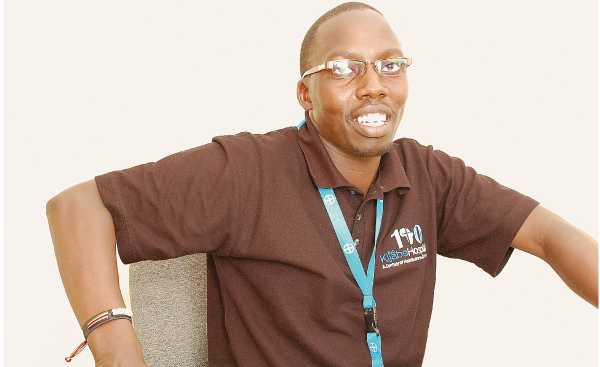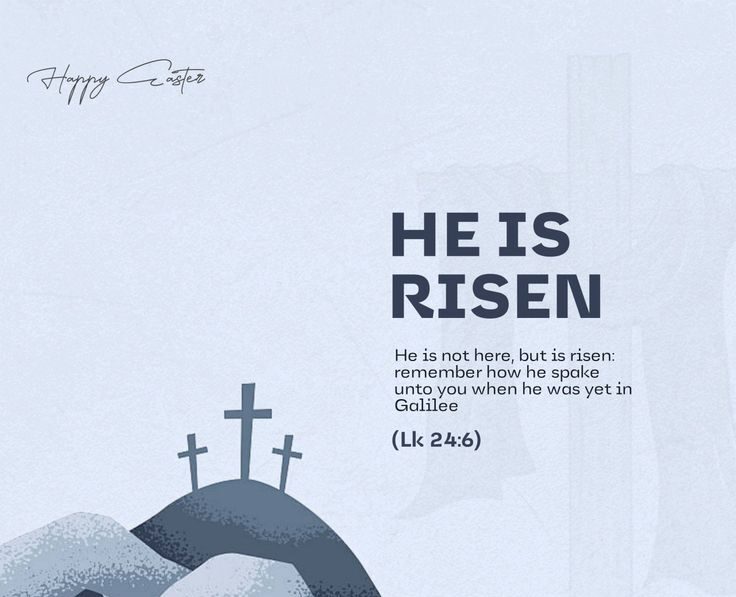ISAAC KIPKEMEI Discarding the POVERTY TAG
Isaac Kipkemei Kenge from Kampi ya Moto, Nakuru County, opines that we often become our own enemies by possessing our miseries and making them part of our lives. He is


Isaac Kipkemei Kenge from Kampi ya Moto, Nakuru County, opines that we often become our own enemies by possessing our miseries and making them part of our lives. He is convinced that accepting the poor man’s mindset is the surest and quickest way of killing your potential. He takes MWAURA MUIGANA through his inspiring life’s journey.
Meet 30-year-old Isaac Kipkemei Kenge, the estate manager at AIC Kijabe Hospital. It is unbelievable that this polished young man spent a part of his early life in hospital due to malnutrition.
And would you imagine his mother abandoned him on the hospital bed? Had it not been for a Good Samaritan, Nayoma, a Maasai woman, Isaac’s script would be reading differently today.
And when his mother resurfaced, she had only one question – ‘hajakufa bado?’ (he hasn’t yet died?) “I’m told the enraged doctor slapped and chased her away. I recovered and returned home in Huruma slums in Eldoret.
That was in 1990. Mum, a single unemployed parent, used to drown her frustrations in local brews. She dumped my siblings and I at our grandparents who were squatters at Kampi ya Moto and retreated to her Eldoret abode,” he laughs it off like a bad joke.
Their grandparent’s plate was full since they had their two youngest children still in the nest. They survived by selling illegal brews. In spite of this dire need, they were enrolled in school. Isaac joined class one in 1992. His peers taunted him because of rickets and brownish hair.
‘Cursed’ family tag
Frequent taunting was bearable and manageable but not the string of deaths of family members that ensued.
“The floodgates opened in 1992 with the passing on of one my grandmothers. In 1993, my grandfather also died and was buried in a public cemetery since the family didn’t own land. Mum reappeared for the burial and this was the first time we saw her since she dumped us. There was no love lost between us. She returned to Eldoret immediately after the simple burial ceremony,” recounts Isaac.
A year later, their other grandmother fell sick and died. The rumour mills went full throttle: the Kenge family was bewitched. They were chased away from the squatter land.
“Betty, one of our aunts took us in. A divorcee and a mother of one girl, Betty didn’t have an income. As fate would have it, her daughter got sick and died soon after we moved in.
To the community, this was a confirmation that our family was a bad omen,” he adds. In April 1995 when he was in class four, some sympathisers brought their mother back home from Eldoret, literally on her deathbed.
She was hospitalised at Mercy Hospital in Eldama Ravine, Baringo County and died after a few days. For Isaac and his siblings, poverty and social stigma were overwhelming.
Betty did her best to protect them. Regrettably, she fell sick in 1996 and also died. With their pillar of support gone, there was an imminent split.
Before reconciling with the loss, another of their aunts died in 1997 followed closely by her sister who was stabbed to death in 1998. Isaac’s two siblings moved in with a relative in Eldama Ravine. Isaac was homeless. One of his classmates invited him to their home but his parents would not host strangers.
“My brother was touched. He came back and we moved back into our aunt’s house. Our sister, uncle and aunt who were also in school joined us,” he shares.
They all attended the same primary school. They weeded neighbour’s shambas for pay every morning before bathing in the river and reporting to school at 7am. Well-wishers often gave them unga, mostly only enough for uji.
They would flavour it with salt in place of the unaffordable sugar. They collected wild vegetables on their way from school, which they boiled for supper. In 1996, life was unbearable and the children split again.
“My brother, then in class eight, rented a room in the shopping centre. Some good neighbours, who used to provide us with food, offered to take me in. My brother was left to fend for himself by juggling between casual jobs and school. The family hosted me for three years until 2000 when I sat my Kenya Certificate of Primary Education (KCPE). I literally owe my life to them, ” says Isaac.
Isaac performed quite well in KCPE scoring 461 out of a possible 700 marks. He, however, could not take his place at Athinai High School for lack of school fees. He moved in with an aunt hoping her husband would come to his rescue.
Her aunt’s husband unfortunately succumbed to cancer. He gave up hope for further education and embarked on casual labour to survive. Meanwhile, his sister had dropped out of school while his brother settled for casual jobs after his KCPE for lack of school fees. As for Isaac, his fortunes were changing for the better.
An upcoming primary school sought to sponsor a bright pupil who would shine in KCPE to boost enrollment. His previous host family recommended him. He was awarded full scholarship and the prospect of boarding in the school was an added advantage. He repeated class eight in 2001.
Life changed dramatically and his academic record spoke volumes. He emerged the best pupil in KCPE not just in the school, but also in the division.
“I was called to Sacho High School, but the Ksh 10,000 fees per term was prohibitive. We organised a harambee that raised Ksh 2,800. I was determined to exploit this life-time opportunity,” he explains.
Hoping against hope, his aunt escorted him to school. They didn’t have any fees or uniform. The principal wouldn’t admit him without the minimum term fees. He felt his dream had been shattered.
Again, he resolved not to give up. He went to the local chief and secured a letter explaining that he was a very needy orphan. He then approached a prominent person who acted as his mediator to plead his case in the school. to give up schooling. I started hawking wares in the shopping centre but when the principal realised I wasn’t coming back, he sent one of his teachers to fetch and take me back to school,” he recollects.
He was enlisted in a work-study programme at the school. He worked during school holidays and got some fees waiver. The school head, his deputy and the school bazaar used to give him pocket money.
During parents visiting days, the school grounds appeared like a car bazaar. Isaac didn’t have visitors. Only one time did his unkempt brother make a surprise visit. Elated Isaac took him for a tour of the school, bought him a cake in the canteen for lunch and later requested one of the parents to give him a lift home because he didn’t have bus fare.
“At first, I was downcast for being the odd one out. But there is no grief that time doesn’t heal. Finally, I accepted my situation in place of the ‘pity party’. There were angels who put a smile on my face. They included my classmate, Pius Mombo, who shared his goodies brought by his parents and deskmate, Lily Ronoh, who gave me several pairs of shoes when mine were worn out.”
Lady luck’s triumphal entry
By the time Isaac was in form three, he had only raised Ksh 10,000 for fees. A Good Samaritan sprung up in his path on one visiting day. He was called to the principal’s office. One of the parents, Alphina Kiplagat, mother to his friend, Brian Kiplagat, was chatting with the principal.
Alphina offered to pay for his school fees until he completed school. She paid Ksh 55,000 on the spot. She also gave him a bag of goodies and Ksh 500 pocket money. Henceforth, Isaac enjoyed visiting days like all other students courtesy of his new ‘mother’.
“It was too good to be true. I studied very hard so as not to let down my sponsor and myself, ” explains Isaac.
He managed a grade B of 67 points in the Kenya Certificate of Secondary Examination and missed university admission by one point. He couldn’t face his sponsor whose son had a direct entry to university with an A grade.
He had saved Ksh 2700 from pocket money and rented a room at the shopping centre for 200 shillings a month to start an independent life. He took up a job in a restaurant and earned Ksh 30 a day with free food.
He also hawked water on a borrowed bicycle and earned Ksh 5 for a jerry can. Alphina later secured him a petrol station attendant’s job in Nakuru town.
Enter university life
“When all hope seemed gone, the then Joint Admissions Board revised the entry points to 67. I was admitted to Kenyatta University’s Kilifi campus. This was the best thing that ever happened in my life. It was an opportunity to finally uplift my family’s standard of living. My sister was already a divorced mother of one. Out of frustration, she had turned to drinking. My brother was still hustling,” says Isaac.
He reported to the campus in September 2007 and pursued a degree in hospitality and tourism management. He proudly paid Ksh 34,000 fees from his savings and later got a government loan of Ksh 50,000.
He confesses that life at the campus was unbelievably smooth. He secured vacation jobs through his lecturers where he got the chance to work for Plan International, the Kenya Red Cross and some hotels.
“Out of hardship, I learnt a good savings culture. By my third year, I had purchased a half-acre plot at Kambi ya Moto and put up a temporary house – the first place I could call a home to go to,” says Isaac.
He successfully completed his degree course in 2011 and worked at a petrol station in Nakuru town from 2011 to 2012. He changed jobs to teach tourism, catering and customer service at a college in the town. With the improved earnings, he renovated and expanded his house. Later, he was employed as a hotel manager at Kivu Retreat in the town before landing another job as the manager of Salient Guest House in Eldoret.
“In October 2013 I got a job as an estate manager at the AIC Kijabe Mission Hospital. I had no previous experience in estate management but I wasn’t cowed. I put together a very formidable team that was result-oriented. I bought another plot in Mogotio in Baringo County to develop for my two siblings. My brother has his own family now,” says Isaac in conclusion, adding that the same people who humiliated and put a curse tag on his family have made a turn around and even invite him to their family functions.
Published in June 2015.





